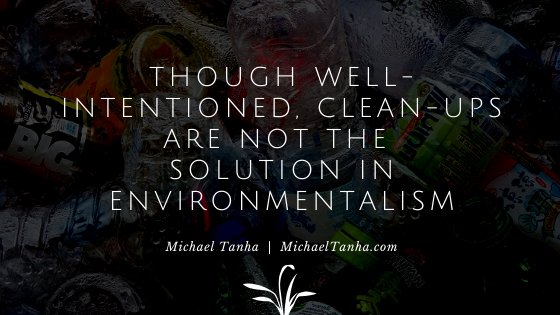You see them periodically throughout the year, usually championed by any number of environmental groups focused on bettering the planet for future generations — but, while clearly well-intentioned and focused in the right direction — ocean clean-ups are, unfortunately, ineffective as a broad solution to our plastics problem.
This sentiment may be jarring to the general public, as we have been conditioned to assume these efforts chip away at the problem bit-by-bit, and while clean-ups should still be encouraged by the environmentally-cognizant, they must also be realistically interpreted in terms of their effectiveness.
A temporary fix for a growing problem
Think of clean-ups as a band-aid for an increasingly severe wound; while their intentions are noble and selfless, they are simply not capable of solving the bigger issue at play. Plastics end up in our oceans as a result of carelessness and ignorance occurring long before they are disposed of. Restaurants, grocery stores, and offices are just a few prominent points of origin in this regard and they collectively represent the true setting for effective action. In some cases, the problem can be traced further back to plastics manufacturers, who must begin exploring new, more sustainable ways to produce their products.
Oceans can act as messengers for broader negligence, but they cannot lead us to the answer when they also embody the byproduct of that negligence.
Why clean-ups still matter
The above facts in mind, ocean clean-ups are effective as an introductory avenue to the ongoing environmental crisis. For young and inexperienced environmentalists, clean-ups help illustrate the physical impact of excessive plastic use; participants can see the damage done at an ecological level — the products floating in the water and laying in the sand, the wildlife and plant life being invaded by unnatural materials. This experience can be visceral and can spur inspiration and higher levels of thought for future involvement.
If anything, clean-ups are the best means of spreading awareness through exposure, and they still matter for that reason alone. That said, we must keep their impact in check and remain knowledgeable about what must be done to stop the crisis at its source.
